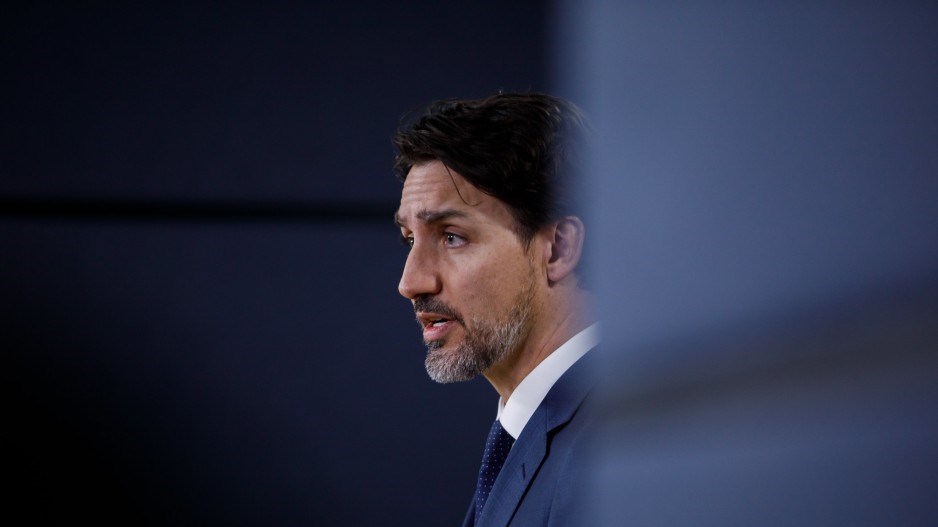Prime Minister Justin Trudeau is urging Canadians not to become complacent during the COVID-19 crisis even as hospitalizations and death have been declining nationally.
He cautioned Wednesday (July 8) some “hotspots” still remain in long-term care and some agricultural settings.
The prime minister made the comments in a media briefing ahead of a scheduled fiscal update — or “snapshot” — from Finance Minister Bill Morneau later in the day.
Trudeau said he would leave the details of the snapshot to his finance minister, but added it was imperative for the federal government to have acted right from the outset of the COVID-19 crisis.
“The cost of doing nothing would have been far more,” he said, adding the pandemic has not been a time for “belt-tightening.”
He said the country has been able to slow down progression of the novel coronavirus significantly and parts of the economy have since been able to reopen.
Trudeau repeatedly touted the nation’s historically low interest rates, which he said would help pay off the accumulated debt.
“If the federal government hadn’t taken on significant debt in order to send money to Canadians to support businesses and households, what would Canadians have done?” he asked.
“They would have loaded up their credit cards, they would have scrambled to try and find ways to pay their bills, pay their groceries and figure out how to care for their loved ones.”
The prime minister said he’s confident about the federal government’s response to the pandemic, which has included hundreds of billions in spending, because of the reduced spread of COVID-19 over the past four months.
“This recession is very different from the last recession,” Trudeau said, adding the 2020 economic problems are related to a health crisis.
“There are going to be really important discussions and political debates about what our economy looks like in the coming years.”
He stated earlier in the briefing that his government was also at work at addressing racial injustices that have been brought to the forefront of conversation following the death of unarmed Black man George Floyd in Minneapolis in May.
Trudeau said fighting discrimination is a top priority and mentioned the need for more capital to help fund racialized entrepreneurs.
The prime minister also faced questions on his involvement in the government’s decision to award the handling of $900-million student grant program to the WE Charity, which has longstanding ties to Trudeau and his family.
“The recommendation to use WE to get opportunities out for young people was made by the public service, but as a cabinet we ratify those decisions,” Trudeau said, adding he did not recuse himself from any cabinet decisions related to the charity.
“I love long worked on youth issues both before I got into politics and since I’ve been in politics.”
Meanwhile, U.S. President Donald Trump and Mexican President Andrés Manuel López Obrador are meeting in Washington, D.C., Wednesday to recognize the ratification of the U.S.-Mexico-Canada Agreement (USMCA), which replaces NAFTA.
Trudeau had earlier declined the invite from Trump but he was quick to reiterate his concerns over the potential for the Americans to reintroduce aluminum tariffs on Canada.
He once again said the U.S. does not produce enough aluminum to fulfill domestic manufacturing needs and any tariffs against Canada imposed by the Americans would hurt the U.S. economy by adding additional costs to customers.
Trump originally hit Canada with aluminum tariffs in 2018, citing national security concerns.



